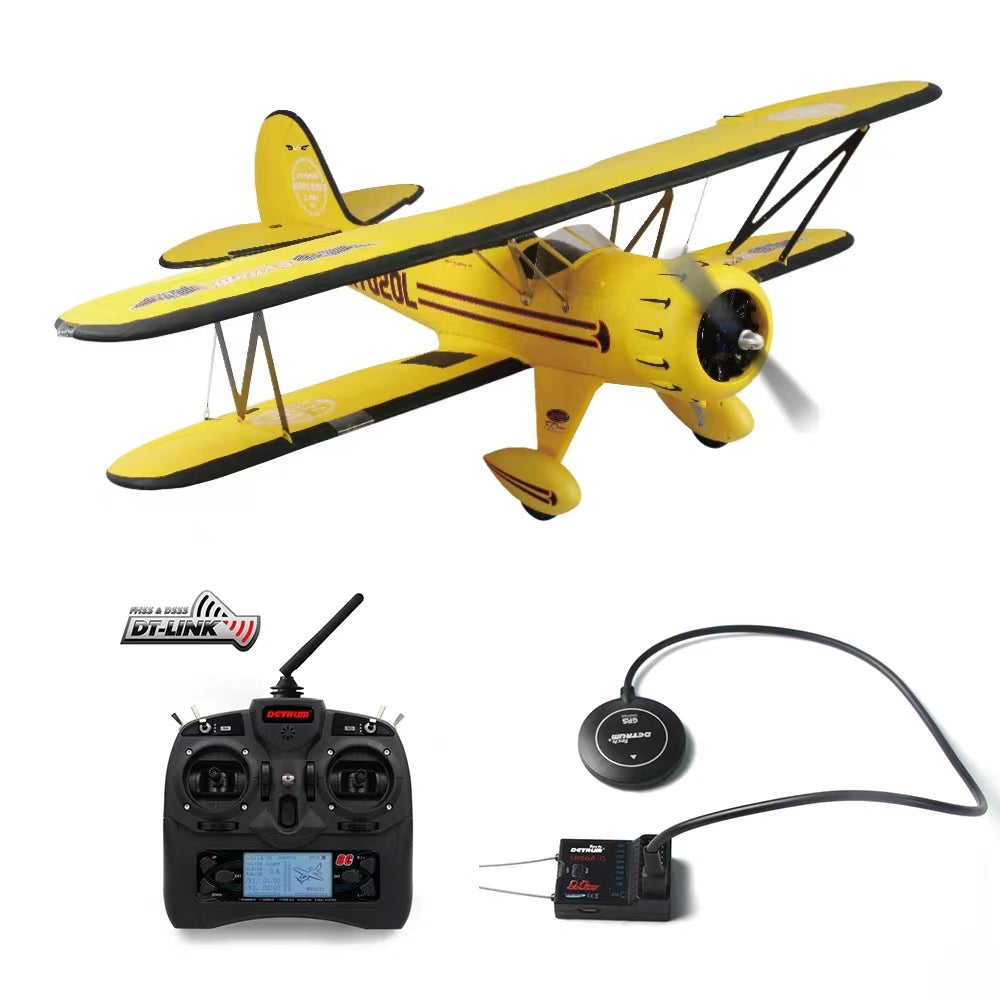What You Need to Know Before Flying RC Planes

Posted by ClydeBeattie
from the Sports and Fitness category at
18 Oct 2024 07:03:34 am.

Choosing the Right RC PlaneTypes of RC Planes
When starting out, the first step is to select the right type of RC plane. Here are the main categories:
Ready-to-Fly (RTF): These kits come with everything you need to get started right out of the box. Ideal for beginners, RTF planes simplify the process by including a transmitter, battery, and charger.
Almost Ready-to-Fly (ARF): These require some assembly, often allowing for customization. While they offer a more hands-on experience, they may require additional components.
Kit Planes: For those who enjoy building, kit planes provide an opportunity to assemble the aircraft from scratch. This option can deepen your understanding of aerodynamics and plane mechanics.
Gliders and Drones: Consider whether you want a glider for slow flying and long durations or a drone for advanced aerial maneuvers and photography.
Before you take your RC plane into the air, it’s vital to familiarize yourself with local regulations. Many countries have specific rules governing the use of RC aircraft, including:
- Height Restrictions: Most places limit how high you can fly.
- No-Fly Zones: Stay away from airports, schools, and crowded areas.
- Registration Requirements: Some regions require RC planes over a certain weight to be registered.
Research your area’s regulations to ensure compliance and maintain safety.
Safety FirstEssential Safety Tips
Safety is paramount when flying RC planes. Follow these guidelines:
Choose a Designated Flying Area: Look for open spaces away from people, animals, and buildings. Parks and fields are often ideal.
Use a Spotter: Having a friend as a spotter can help you stay aware of your surroundings, especially if you’re new to flying.
Check Weather Conditions: Avoid flying in high winds or inclement weather, as these can affect control and safety.
Wear Protective Gear: While not always necessary, using goggles or face protection can prevent injuries from unexpected crashes.
Once you have your plane, it's time to practice flying. Start with basic maneuvers, such as:
- Takeoff and Landing: Focus on getting your plane off the ground smoothly and landing safely.
- Basic Turns: Practice gentle turns to understand how your plane responds to controls.
- Stability and Control: Learn how to maintain a steady flight and correct for any unexpected movements.
Consider investing in a flight simulator or joining a local RC club for hands-on guidance and tips from experienced pilots.
Maintenance and CareKeeping Your RC Plane in Top Shape
Regular maintenance is crucial for the longevity and performance of your RC plane. Follow these tips:
Inspect Before Flight: Always check your plane for loose components, damaged parts, or wear and tear before flying.
Clean Regularly: Dirt and debris can affect performance. Clean your plane after each flight to remove any buildup.
Battery Care: Ensure batteries are charged and stored properly. Follow the manufacturer's recommendations for charging and storage to extend battery life.
Storage: Keep your plane in a cool, dry place to prevent damage from humidity or extreme temperatures.
Joining an RC flying club or community can enhance your experience significantly. Benefits include:
Shared Knowledge: Learn from experienced pilots and gain insights that can help improve your skills.
Group Events: Participate in competitions, fly-ins, and other events that foster camaraderie and fun.
Access to Resources: Clubs often provide access to tools, repair facilities, and group purchases for better deals on equipment.
Flying RC planes can be a rewarding and exhilarating hobby. By choosing the right plane, adhering to regulations, prioritizing safety, and maintaining your equipment, you can ensure a fantastic flying experience. Embrace the learning curve, connect with fellow enthusiasts, and enjoy every moment in the sky. Happy flying!
Tags: blogs
0 Comments



